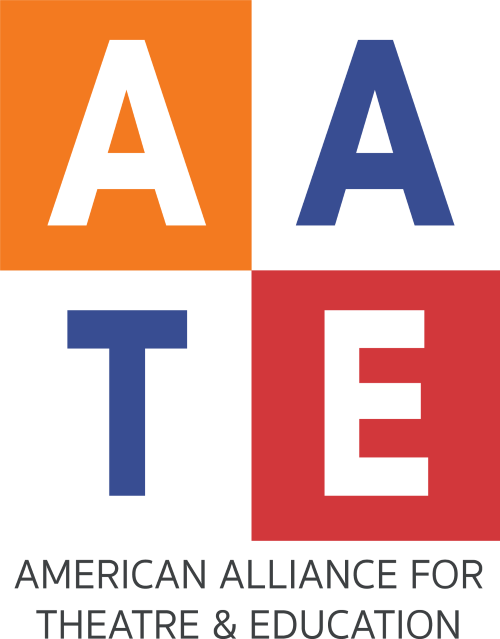- Home
- About AATE
- Membership
- Programs and Events
- Resources
- Networking
- Support AATE
- Online Store
- Contact Us
Session Block 1Friday, July 24th, 12-1:15pm (EDT)
All of the Session Blocks will be hosted on Zoom Meeting. You will be sent an email, 24 hours prior to the next days events, which will contain all of the log on details for each event. As in a in-person Conference, please feel free to select whichever workshop you would like to attend in the moment. Network: College/University/Research Envisioning Preservice Theatre Teachers Directly Engaged in Community This session seeks to share techniques university professors have discovered to prepare pre-service theatre educators for their careers in theatre education and also provide ideas for seasoned educators in community engagement opportunities. Learning experientially while engaged in community-based activities greatly enhances a pre-service teacher’s education and preparation. Active and quality artistic engagement with young people in our diverse communities is a necessity given the current socio-economic and political environment. College students find value in having as many hands-on experiences as possible before jumping into the waters of student teaching. We believe it is necessary for students to become accustomed to the reality of being a theatre teacher and artist in today’s world. Therefore, this panel is devoted to sharing the techniques we use to achieve meaningful community engagement experiences that extend and expand learning in more traditional classroom settings. Attendees will take away implementable ideas that future or current theatre teachers can immediately utilize artistically, personally, and socially. In addition, the techniques we offer intentionally transform the role of theatre in our communities and promote diversity and inclusion with our youth. Network: Applied Theatre Cultivating a Creative Generation: Leadership Tools for Educators In 2019, new research revealed gaps in the language we use to describe the impact of arts and cultural education for young people and communities. This same research showed that all of us, as theatre educators, have a professional responsibility to refine our pedagogy and practice to ensure we are developing the creative capabilities of the next generation so they may serve as catalysts for social transformation. In this session, educators will examine their own leadership strengths, explore new frameworks for their teaching, and engender a community of practice among their peers. Each attendee will leave with new strategies to connect theatre education to social justice pedagogies, a renewed commitment to leadership in their community, and refined tactics for youth empowerment. Network: High School Playwriting for Social Change This workshop will explore how playwriting can offer high school students tools to depict social issues and a platform to call for social change. The workshop will model a unit that takes students from reading a short play exploring racial relations in the U.S.A. to writing of a short dramatic scene that explores a social issue which they are passionate about. Participants in this workshop should expect to participate in discussions about social identities (e.g. race, ethnicity, gender, sexual orientation, class), write short dramatic pieces, and do some role playing. Network: Early Childhood Playful Pedagogy: A Collaborative Model to Teach and Create TVY This session explores a collaborative model for new work development and artistic training in Theatre for the Very Young. James Madison University's Theatre Education Program partnered with Arts on the Horizon (a professional Theatre for the Very Young company) to support the next generation of artists and educators as they investigated this emerging form. The 6-week model considered how university students can work on and with new work, collaborate with professional artists, and learn about the target audience. This session will examine the multiple partnerships within the model and highlight successes, challenges, and moments of tension. Together, we will work to explore the following questions: What are models for collaboration in Theatre for the Very Young? How do we promote Theatre for the Very Young as a viable career path to young artists? How can Theatre for the Very Young be included in a university course as part of the TYA canon?
|
